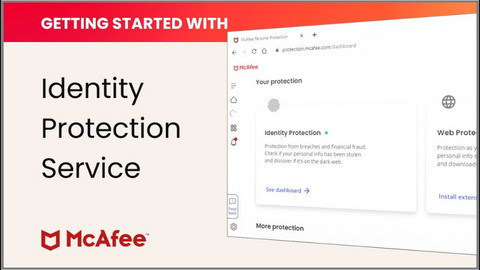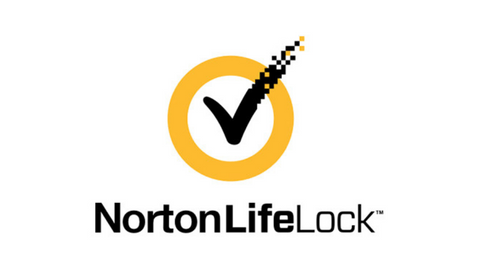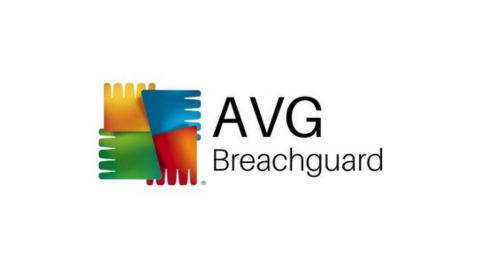In today’s digital age, the protection of our identities has assumed a critical role in our daily lives.
As we traverse the boundless realms of the internet, our personal information is increasingly at risk. The omnipresent threats of identity theft, fraud, and cybercrime underscore the necessity of understanding identity protection.
This comprehensive article aims to elucidate what identity protection is, the advantages of employing identity protection services, and addresses concerns about identity protection.
Table of Contents
The Digital Age: A Double-Edged Sword
The digital age, with its marvels and conveniences, has introduced a double-edged sword into our lives.
It has granted us unprecedented access to information, facilitated seamless transactions, and connected us with people globally. However, this technological revolution has a dark side – one that exposes us to cybercriminals intent on exploiting the chinks in our digital armor.
Identity Protection Deals
Identity Theft: A Growing Threat
Identity theft, the unlawful appropriation of an individual’s personal information for fraudulent purposes, has evolved into a pervasive menace in the digital era.
Our sensitive data is now stored and shared across various online platforms, making us vulnerable to malicious actors who exploit these digital openings.
The consequences of identity theft can be financially devastating, emotionally distressing, and detrimental to one’s reputation.
READ ALSO: OmniWatch Review
What Is Identity Protection?
Identity protection is a proactive, multifaceted strategy to secure personal information and mitigate the risks associated with identity theft.
This holistic approach encompasses several practices and measures aimed at fortifying your digital persona, ensuring its integrity, and safeguarding your personal information and digital privacy.
𝕴𝖉𝖊𝖓𝖙𝖎𝖙𝖞 𝖕𝖗𝖔𝖙𝖊𝖈𝖙𝖎𝖔𝖓 𝖒𝖊𝖆𝖓𝖘 𝖘𝖆𝖋𝖊𝖌𝖚𝖆𝖗𝖉𝖎𝖓𝖌 𝖞𝖔𝖚𝖗 𝖕𝖊𝖗𝖘𝖔𝖓𝖆𝖑 𝖉𝖆𝖙𝖆 𝖘𝖚𝖈𝖍 𝖆𝖘 𝖕𝖆𝖘𝖘𝖜𝖔𝖗𝖉𝖘, 𝕴𝕯 𝖓𝖚𝖒𝖇𝖊𝖗𝖘, 𝖔𝖗 𝖈𝖗𝖊𝖉𝖎𝖙 𝖈𝖆𝖗𝖉 𝖓𝖚𝖒𝖇𝖊𝖗𝖘, 𝖋𝖗𝖔𝖒 𝖈𝖞𝖇𝖊𝖗𝖈𝖗𝖎𝖒𝖎𝖓𝖆𝖑𝖘. pic.twitter.com/I3OCoNPhMc
— SecureBlitz Cybersecurity Blog (@secureblitz) April 26, 2020
Components Of Identity Protection
Here are the key components of identity protection:
Strong Passwords and Two-Factor Authentication (2FA)
One of the first lines of defense in identity protection is the creation of robust, unique passwords for your online accounts. Strong passwords often incorporate a combination of uppercase and lowercase letters, numbers, and special characters.
Password managers can help generate and securely store these complex passwords. Adding an extra layer of security is as simple as enabling two-factor authentication (2FA), which requires secondary verification methods, such as a text message or biometric scan, during login.
Regular Software Updates
Cybercriminals often exploit vulnerabilities in outdated software to gain unauthorized access to your devices and accounts. To thwart such attempts, it’s vital to keep your operating systems, applications, and antivirus software up to date.
Software updates usually include patches that rectify security flaws, thus enhancing your protection against cyber threats.
Phishing Awareness
Phishing, a prevalent tactic employed by cybercriminals, involves fraudulent emails or websites that mimic trusted organizations. These deceptive communications attempt to lure recipients into clicking on malicious links or sharing sensitive data.
Familiarizing yourself with the telltale signs of phishing attempts is fundamental to identity protection.
Secure Wi-Fi and Network Practices
Public Wi-Fi networks can be insecure and vulnerable to cyberattacks. To ensure your safety while connecting to public Wi-Fi, consider using a Virtual Private Network (VPN).
Furthermore, safeguard your home network by implementing a strong, unique password and encryption, creating a secure online environment.
Data Encryption
Encryption, a process of encoding information to restrict access to authorized individuals, is widely used in modern communication services like messaging apps and online banking.
Ensuring that your online interactions are encrypted provides a protective shield against eavesdropping and data interception.
READ ALSO: Identity Protection Guide
Monitor Your Credit and Financial Accounts
Regularly monitoring your financial accounts and credit reports is essential for early detection of unauthorized or suspicious activity.
Identity protection services often include credit monitoring as part of their offerings, alerting you to any unusual changes in your financial history.
Identity Protection Services
Identity protection services have emerged as a comprehensive solution for safeguarding personal information. These services typically encompass credit monitoring, identity theft insurance, and expert assistance for identity theft recovery.
Opting for a reputable service can provide peace of mind and professional support in the event of an identity theft incident.
Best Identity Protection Services
Benefits of Using Identity Protection Services
The benefits of using identity protection services are manifold:
- Comprehensive Monitoring: Identity protection services continuously monitor your personal information, credit reports, and online presence to detect any irregular activity promptly.
- Expert Guidance: In the unfortunate event of identity theft, these services offer expert assistance in the recovery process, guiding you through the necessary steps to reclaim your identity.
- Identity Theft Insurance: Many identity protection services provide insurance coverage to mitigate the financial repercussions of identity theft, offering compensation for losses incurred during the recovery process.
- Peace of Mind: Knowing that professionals are actively safeguarding your identity allows you to navigate the digital world with increased confidence and peace of mind.
- Time Savings: Identity protection services save you the time and effort required for continuous monitoring and handling the aftermath of identity theft.
READ ALSO: Identity Theft Is Not A Joke, Jim [MUST READ]
Identity Protection – Frequently Asked Questions
What is identity protection, and why do I need it?
Identity protection involves proactive measures to secure your personal information and mitigate the risks of identity theft. You need it to safeguard your digital persona and protect yourself from financial loss and emotional distress.
How do I create strong passwords, and why are they important?
Strong passwords consist of a mix of uppercase and lowercase letters, numbers, and special characters. They are crucial because they make it difficult for cybercriminals to crack your accounts, enhancing your overall security.
What is two-factor authentication (2FA), and why should I use it?
2FA adds an extra layer of security to your accounts by requiring a secondary verification method, such as a text message or biometric scan. It significantly reduces the risk of unauthorized access, even if someone knows your password.
What are identity protection services, and how do they work?
Identity protection services offer comprehensive monitoring of your personal information and credit reports, providing expert guidance and identity theft insurance in case of a security breach.
Are identity protection services worth the cost?
The value of identity protection services lies in the peace of mind and expert assistance they provide. The cost is often justified by the time and financial savings in the event of an identity theft incident.
Conclusion
In the digital age, identity protection is not merely an option but a necessity. It demands a combination of prudent practices, security measures, and vigilance to mitigate the omnipresent threat of identity theft.
The consequences of a successful identity theft can be life-altering, underscoring the importance of understanding and implementing identity protection measures.
As our digital world continues to evolve, identity protection remains at the forefront of personal security. The choice is ours: to be passive victims of cybercrime or active guardians of our digital personas.
By grasping the significance of identity protection and taking proactive steps to secure our personal information, we can navigate the digital age with confidence, peace of mind, and an unwavering sense of security.
RELATED POSTS
- How To Protect Your Online Identity
- Why Is Identity Theft A Big Concern For Businesses?
- Cybersecurity Explained in Fewer than 140 Characters
- Smart Home Explained in Fewer than 140 Characters
- Antivirus Explained in Fewer than 140 Characters
- Password Explained in Fewer than 140 Characters
- Online Privacy Explained: What It Is, Why It’s Important, and How to Protect It
About the Author:
Amaya Paucek is a professional with an MBA and practical experience in SEO and digital marketing. She is based in Philippines and specializes in helping businesses achieve their goals using her digital marketing skills. She is a keen observer of the ever-evolving digital landscape and looks forward to making a mark in the digital space.
Meet Angela Daniel, an esteemed cybersecurity expert and the Associate Editor at SecureBlitz. With a profound understanding of the digital security landscape, Angela is dedicated to sharing her wealth of knowledge with readers. Her insightful articles delve into the intricacies of cybersecurity, offering a beacon of understanding in the ever-evolving realm of online safety.
Angela's expertise is grounded in a passion for staying at the forefront of emerging threats and protective measures. Her commitment to empowering individuals and organizations with the tools and insights to safeguard their digital presence is unwavering.





















